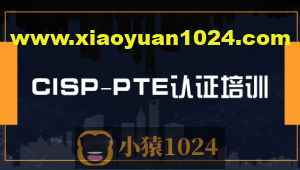Ajax&Vue
1、Ajax
1.1、概述
- AJAX(Asynchronous JavaScript And XML):异步的JavaScript和XML
- 作用
- 1.与服务器进行数据交换:通过ajax可以给服务器发送请求,服务器将数据直接响应回给浏览器。
- 如图是没使用Ajax的时候,各个请求之间的流程

- Servlet调用完业务逻辑层后将数据存储到域对象中,然后跳转到指定的JSP页面,在页面上使用EL表达式和JSTL标签库进行数据的展示
- 在学习Ajax后,就可以使用Ajax和服务器进行通信,以达到使用HTML+Ajax来替代JSP页面。

- 在上图中,浏览器发送请求给Servlet,Servlet调用完业务逻辑层后将数据直接响应回给浏览器页面,页面使用HTML来进行数据展示
- 如图是没使用Ajax的时候,各个请求之间的流程
- 2.进行异步交互:可以在不重新加载整个页面的情况下(局部刷新),与服务器交换数据并更新部分网页的技术,如:搜索联想、用户名是否可用校验,等等
- 1.与服务器进行数据交换:通过ajax可以给服务器发送请求,服务器将数据直接响应回给浏览器。
1.2、同步和异步的概念
- 同步发送请求的过程如下所示

- 浏览器页面发送请求给服务器,在服务器处理请求的过程中,浏览器页面不能做其他操作。只能等到服务器响应结束之后,浏览器页面才能继续其他操作
- 异步发送请求的过程如下所示

- 浏览器页面发送请求给服务器,在服务器处理请求的过程中,浏览器页面还可以做其他的操作
1.3、Ajax入门
1.3.1、客户端代码
-
<!DOCTYPE html> <html lang="en"> <head> <meta charset="UTF-8"> <title>Title</title> </head> <body> <input><br> <input type="button" value="点我,我在睡觉" onclick="sendAjax()"> </body> <script> function sendAjax() { //1.创建核心对象 xmlhttp=null; if (window.XMLHttpRequest) {// code for IE7, Firefox, Opera, etc. xmlhttp=new XMLHttpRequest(); } else if (window.ActiveXObject) {// code for IE6, IE5 xmlhttp=new ActiveXObject("Microsoft.XMLHTTP"); } //2.明确发送的请求方式和请求路径 xmlhttp.open("get","/day28/ajaxServlet?username=tom") //3.发送请求 xmlhttp.send() //4.处理响应 xmlhttp.onreadystatechange=function () { //当响应完成的时候且响应正常完成的时候 if (xmlhttp.readyState == 4 && xmlhttp.status == 200) { alert(xmlhttp.responseText); } } } </script> </html>
1.3.2、服务端代码
-
package com.itheima.web.servlet; import javax.servlet.ServletException; import javax.servlet.annotation.WebServlet; import javax.servlet.http.HttpServlet; import javax.servlet.http.HttpServletRequest; import javax.servlet.http.HttpServletResponse; import java.io.IOException; @WebServlet(value = "/ajaxServlet") public class AjaxServlet extends HttpServlet { protected void doPost(HttpServletRequest request, HttpServletResponse response) throws ServletException, IOException { doGet(request, response); } protected void doGet(HttpServletRequest request, HttpServletResponse response) throws ServletException, IOException { //获取发送过来的参数 String username = request.getParameter("username"); System.out.println(username); //生成响应 response.getWriter().print("ok~~~"); } }
1.3.3、实现效果

- 不难发现,点击按钮后,整个页面并没有发生跳转,只是进行了局部的刷新
1.4、校验用户名是否存在案例(仅测试,不做过多的逻辑判断)
1.4.1、需求
- 在完成用户注册的时候,当用户名输入框失去焦点时,校验用户名是否在数据库中存在
1.4.2、分析
- 前端完成的逻辑
- 1.给用户名输入框绑定光标失去焦点事件
onblur - 2.发送ajax请求,携带username参数
- 3.处理响应:是否显示提示信息
- 1.给用户名输入框绑定光标失去焦点事件
- 后端完成的逻辑
- 1.接收用户名
- 2.调用service查询User
- 3.返回标记
1.4.3、整体流程图
1.4.4、前端实现
-
Step1:给用户名输入框绑定光标失去焦点事件
-
//1. 给用户名输入框绑定 失去焦点事件 document.getElementById("username").onblur = function () { }
-
-
Step2:发送ajax请求,携带username参数
-
//2. 发送ajax请求 //2.1. 创建核心对象 var xhttp; if (window.XMLHttpRequest) { xhttp = new XMLHttpRequest(); } else { // code for IE6, IE5 xhttp = new ActiveXObject("Microsoft.XMLHTTP"); } //2.2. 发送请求 xhttp.open("GET", "http://localhost:8080/ajax-demo/selectUserServlet); xhttp.send(); //2.3. 获取响应 xhttp.onreadystatechange = function() { if (this.readyState == 4 && this.status == 200) { //处理响应的结果 } }; -
由于我们发送的是 GET 请求,所以需要在 URL 后拼接从输入框获取的用户名数据。而我们在
第一步绑定的匿名函数中通过以下代码可以获取用户名数据 -
// 获取用户名的值 var username = this.value; //this : 给谁绑定的事件,this就代表谁 -
而携带数据需要将 URL 修改为:
-
xhttp.open("GET", "http://localhost:8080/ajax-demo/selectUserServlet?username="+username);
-
-
Step3:处理响应,根据响应判断是否显示提示信息
-
当
this.readyState == 4 && this.status == 200条件满足时,说明已经成功响应数据了 -
此时需要判断响应的数据是否是 “true” 字符串,如果是说明用户名已经占用给出错误提示;如果不是说明用户名未被占用清除错误提示。代码如下
-
//判断 if(this.responseText == "true"){ //用户名存在,显示提示信息 document.getElementById("username_err").style.display = ''; }else { //用户名不存在 ,清楚提示信息 document.getElementById("username_err").style.display = 'none'; }
-
-
-
完整JS代码
-
//1. 给用户名输入框绑定 失去焦点事件 document.getElementById("username").onblur = function () { //2. 发送ajax请求 // 获取用户名的值 var username = this.value; //2.1. 创建核心对象 var xhttp; if (window.XMLHttpRequest) { xhttp = new XMLHttpRequest(); } else { // code for IE6, IE5 xhttp = new ActiveXObject("Microsoft.XMLHTTP"); } //2.2. 发送请求 xhttp.open("GET", "http://localhost:8080/ajax-demo/selectUserServlet?username="+username); xhttp.send(); //2.3. 获取响应 xhttp.onreadystatechange = function() { if (this.readyState == 4 && this.status == 200) { //alert(this.responseText); //判断 if(this.responseText == "true"){ //用户名存在,显示提示信息 document.getElementById("username_err").style.display = ''; }else { //用户名不存在 ,清楚提示信息 document.getElementById("username_err").style.display = 'none'; } } }; }
-
1.4.5、后端实现
-
@WebServlet("/selectUserServlet") public class SelectUserServlet extends HttpServlet { @Override protected void doGet(HttpServletRequest request, HttpServletResponse response) throws ServletException, IOException { //1. 接收用户名 String username = request.getParameter("username"); //2. 调用service查询User对象,此处不进行业务逻辑处理,直接给 flag 赋值为 true,表明用户名占用 boolean flag = true; //3. 响应标记 response.getWriter().write("" + flag); } @Override protected void doPost(HttpServletRequest request, HttpServletResponse response) throws ServletException, IOException { this.doGet(request, response); } }
1.4.6、实现效果
2、Axios
- 概念
- Axios是对原生的Ajax进行封装,简化书写
2.1、基本使用
-
1.引入axios的js文件
-
<script src="js/axios-0.18.0.js"></script>
-
-
2.使用axios发送ajax请求
-
发送get请求
-
axios({ method:"get", url:"http://localhost:8080/ajax-demo1/aJAXDemo1?username=zhangsan" }).then(function (resp){ alert(resp.data); });
-
-
发送post请求
-
axios({ method:"post", url:"http://localhost:8080/ajax-demo1/aJAXDemo1", data:"username=zhangsan" }).then(function (resp){ alert(resp.data); });
-
-
-
说明
axios()是用来发送异步请求的,小括号中使用js对象传递相关的参数method属性:用来设置请求方式的。取值为get或者posturl属性:用来书写请求的资源路径。如果是get请求,需要将请求参数拼接到路径的后面,格式为:url?参数名1=参数值1&参数名2=参数值2data属性:作为请求体被发送的数据。也就是说如果是post请求的话。数据需要作为data属性的值
then()需要传递一个匿名函数。then()中传递的匿名函数称为回调函数,意思是该匿名函数在发送请求的时候不会被调用,而是在成功响应后调用的函数。resp属性是对响应的数据进行封装的对象,通过resp.data可以获取到响应的数据
2.2、基本使用
2.2.1、后端实现
-
@WebServlet("/axiosServlet") public class AxiosServlet extends HttpServlet { @Override protected void doGet(HttpServletRequest request, HttpServletResponse response) throws ServletException, IOException { System.out.println("get..."); //1. 接收请求参数 String username = request.getParameter("username"); System.out.println(username); //2. 响应数据 response.getWriter().write("hello Axios~"); } @Override protected void doPost(HttpServletRequest request, HttpServletResponse response) throws ServletException, IOException { System.out.println("post..."); this.doGet(request, response); } }
2.2.2、前端实现
-
1.引入js文件
-
<script src="js/axios-0.18.0.js"></script>
-
-
2.发送ajax请求
-
get请求
-
axios({ method:"get", url:"http://localhost:8080/ajax-demo/axiosServlet?username=zhangsan" }).then(function (resp) { alert(resp.data); })
-
-
post请求
-
axios({ method:"post", url:"http://localhost:8080/ajax-demo/axiosServlet", data:"username=zhangsan" }).then(function (resp) { alert(resp.data); })
-
-
-
完整代码
-
<!DOCTYPE html> <html lang="en"> <head> <meta charset="UTF-8"> <title>axios-demo</title> </head> <body> <input type="button" value="发送get请求" id="btn1"> <input type="button" value="发送post请求" id="btn2"> </body> <!--导入axios.js--> <script src="./js/axios-0.18.0.js"></script> <!--编写axios的代码--> <script> document.getElementById("btn1").onclick = function () { // axios({ // method: "get", // url: "axiosServlet?username=tom" // }).then(function (response) { // // console.log(response); // // console.log(response.data); // window.alert(response); // window.alert(response.data); // }); // axios更简化的写法 axios.get("axiosServlet?username=tom").then(response => { console.log(response.data); }); } document.getElementById("btn2").onclick = function () { // axios({ // method: "post", // url: "axiosServlet", // data: "username=tom" // }).then(function (response) { // // console.log(response); // // console.log(response.data); // window.alert(response); // window.alert(response.data); // }); // axios更简化的写法 axios.post("axiosServlet", "username=tom").then(response => { console.log(response.data); }); } </script> </html>
-
2.2.3、实现效果
2.3、Axios请求方法别名
get请求 :axios.get(url[,config])delete请求 :axios.delete(url[,config])head请求 :axios.head(url[,config])options请求 :axios.option(url[,config])post请求:axios.post(url[,data[,config])put请求:axios.put(url[,data[,config])patch请求:axios.patch(url[,data[,config])
PS:
axios会自动对JSON串进行转换- 发送异步请求时,如果请求参数是
JSON格式,那请求方式必须是POST。因为JSON串需要放在请求体中
2.4、使用Axios和JSON完成学生列表数据查询
虽然实现的效果差不多,但是实际上免去了JSTL中复杂的编写格式
2.4.1、前端实现
-
<!DOCTYPE html> <html lang="en"> <head> <meta charset="UTF-8"> <title>学生信息</title> </head> <body> <hr> <table id="studentTable" border="1" cellspacing="0" width="800" align="center"> </table> <script src="./js/axios-0.18.0.js"></script> <!--<script>window.alert("等待页面加载.....");</script>--> <script> // 在页面加载完成的时候,展示数据 console.log("等待页面加载....."); window.alert("等待页面加载....."); window.onload = function () { window.alert("页面加载成功,正在发送ajax请求!"); // 发送ajax的get请求,获取所有学生的信息 axios.get("selectAllStudentsServlet").then(response => { // console.log(response.data); // 定义表格中的首行信息 let startTr = "<tr>\n" + " <th>序号</th>\n" + " <th>学号</th>\n" + " <th>姓名</th>\n" + " <th>年龄</th>\n" + " <th>性别</th>\n" + " <th>语文成绩</th>\n" + " <th>数学成绩</th>\n" + " <th>英语成绩</th>\n" + " <th>操作</th>\n" + " </tr>"; // 定义表格中的末尾信息 let endTr = "<tr align=\"center\">\n" + " <td></td>\n" + " <td></td>\n" + " <td></td>\n" + " <td></td>\n" + " <td></td>\n" + " <td></td>\n" + " <td></td>\n" + " <td></td>\n" + " <td><input type=\"button\" value=\"新增学生信息\" onclick=\"location.href=('#')\"></td>\n" + " </tr>"; let middleTr = ""; // 遍历json数组,获取每个学生对象 // 获取返回的json数组 let arr = response.data; for (let i = 0; i < arr.length; i++) { // 将每个品牌封装成tr标签 middleTr += "<tr align=\"center\">\n" + " <td>" + (i + 1) + "</td>\n" + " <td>" + (arr[i].stuNumber) + "</td>\n" + " <td>" + (arr[i].name) + "</td>\n" + " <td>" + (arr[i].age) + "</td>\n" + " <td>" + (arr[i].sex) + "</td>\n" + " <td>" + (arr[i].chineseScore) + "</td>\n" + " <td>" + (arr[i].mathScore) + "</td>\n" + " <td>" + (arr[i].englishScore) + "</td>\n" + " <td>\n" + " <input type=\"button\" src=\"#\" value=\"修改\">\n" + " <input type=\"button\" src=\"#\" value=\"删除\">\n" + " </td>\n" + " </tr>"; } // 将所有的tr标签放入table标签终 document.getElementById("studentTable").innerHTML = startTr + middleTr + endTr; window.alert(document.getElementById("studentTable").innerHTML); }); } </script> </body> </html>
2.4.2、后端实现
-
package com.coolman.web.servlet; import com.alibaba.fastjson.JSON; import com.coolman.pojo.Student; import com.coolman.service.StudentService; import javax.servlet.ServletException; import javax.servlet.annotation.WebServlet; import javax.servlet.http.HttpServlet; import javax.servlet.http.HttpServletRequest; import javax.servlet.http.HttpServletResponse; import java.io.IOException; import java.util.List; @WebServlet("/selectAllStudentsServlet") public class SelectAllStudentsServlet extends HttpServlet { protected void doPost(HttpServletRequest request, HttpServletResponse response) throws ServletException, IOException { doGet(request, response); } protected void doGet(HttpServletRequest request, HttpServletResponse response) throws ServletException, IOException { // 在这里处理请求 // 调用服务,查询所有学生信息 List<Student> students = new StudentService().selectAllStudent(); // 将List对象转换成JSON格式的字符串 String str = JSON.toJSONString(students); // 处理中文乱码问题 // 方案1 // response.setContentType("text/html;charset=utf-8"); // 方案2 response.setContentType("application/json;charset=utf-8"); // 返回字符串 response.getWriter().print(str); } }
2.5、使用Axios和JSON完成新增学生信息
2.5.1、前端实现
-
<!DOCTYPE html> <html lang="en"> <head> <meta charset="UTF-8"> <title>添加学生信息</title> </head> <body> <h3 align="center" style="color: red">添加学生信息</h3> <form> <div align="center"> <span>学号: <input name="stuNumber" id="stuNumber"> <br/> <span style="color: red" id="stuNumber_err_msg"></span> <br/> </span> <span>姓名: <input name="name" id="name"> <br> <span style="color: red" id="name_err_msg"></span> <br> </span> <span>年龄: <input name="age" id="age"> <br> <span style="color: red" id="age_err_msg"></span> <br> </span> <span>性别: <input name="sex" id="sex"> <br> <span style="color: red" id="sex_err_msg"></span> <br> </span> <span>语文成绩: <input name="chineseScore" id="chineseScore"> <br> <span style="color: red" id="chineseScore_err_msg"></span> <br> </span> <span>数学成绩: <input name="mathScore" id="mathScore"> <br> <span style="color: red" id="mathScore_err_msg"></span> <br> </span> <span>英语成绩: <input name="englishScore" id="englishScore"> <br> <span style="color: red" id="englishScore_err_msg"></span> <br> </span> <input id="commit" type="button" value="提交"> </div> </form> <script src="./js/axios-0.18.0.js"></script> <script> // 定义一个对象,接收输入框中的信息 let studentFormData = { stuNumber: "", name: "", age: "", sex: "", chineseScore: "", mathScore: "", englishScore: "", } // 判断输入框是否为空 document.getElementById("stuNumber").onblur = function () { let stuNumber = this.value; if (stuNumber != "") { studentFormData.stuNumber = stuNumber; } else { document.getElementById("stuNumber_err_msg").innerText = "学号不能为空"; } }; document.getElementById("name").onblur = function () { let name = this.value; if (name != "") { studentFormData.name = name; } else { document.getElementById("name_err_msg").innerText = "姓名不能为空"; } }; document.getElementById("age").onblur = function () { let age = this.value; if (age != "") { studentFormData.age = age; } else { document.getElementById("age_err_msg").innerText = "年龄不能为空"; } }; document.getElementById("sex").onblur = function () { let sex = this.value; if (sex != "") { studentFormData.sex = sex; } else { document.getElementById("sex_err_msg").innerText = "性别不能为空"; } }; document.getElementById("chineseScore").onblur = function () { let chineseScore = this.value; if (chineseScore != "") { studentFormData.chineseScore = chineseScore; } else { document.getElementById("chineseScore_err_msg").innerText = "语文成绩不能为空"; } }; document.getElementById("mathScore").onblur = function () { let mathScore = this.value; if (mathScore != "") { studentFormData.mathScore = mathScore; } else { document.getElementById("mathScore_err_msg").innerText = "数学成绩不能为空"; } }; document.getElementById("englishScore").onblur = function () { let englishScore = this.value; if (englishScore != "") { studentFormData.englishScore = englishScore; } else { document.getElementById("englishScore_err_msg").innerText = "英语成绩不能为空"; } }; // 绑定提交事件 document.getElementById("commit").onclick = function () { // 判断对象是否存在数据 // 不存在则不发送添加学生信息的请求 if (studentFormData.name != "" && studentFormData.age != "" && studentFormData.sex != "" && studentFormData.stuNumber != "" && studentFormData.chineseScore != "" && studentFormData.mathScore != "" && studentFormData.englishScore != "" ) { // 发送ajax请求,添加学生数据 axios.post("addStudentServlet", studentFormData).then(response => { if (response.data == "ok") { location.href = "studentList.html"; } }); } else { window.alert("请补全信息!"); } } </script> </body> </html>
2.5.2、后端实现
-
package com.coolman.web.servlet; import com.alibaba.fastjson.JSON; import com.coolman.pojo.Student; import com.coolman.service.StudentService; import javax.servlet.ServletException; import javax.servlet.ServletInputStream; import javax.servlet.annotation.WebServlet; import javax.servlet.http.HttpServlet; import javax.servlet.http.HttpServletRequest; import javax.servlet.http.HttpServletResponse; import java.io.IOException; @WebServlet("/addStudentServlet") public class AddStudentServlet extends HttpServlet { protected void doPost(HttpServletRequest request, HttpServletResponse response) throws ServletException, IOException { doGet(request, response); } protected void doGet(HttpServletRequest request, HttpServletResponse response) throws ServletException, IOException { // 在这里处理请求 //1.获取请求体中的流 ServletInputStream is = request.getInputStream(); //2.把流转成java对象 Student student = JSON.parseObject(is, Student.class); //3.调用service中保存方法 new StudentService().addStudent(student); //4.通知前端保存成功 response.getWriter().print("ok"); } }
3、Vue
3.1、概念
- Vue是一套前端框架,免除原生JavaScript中的DOM操作,简化书写。其基于MVVM(Model-View-ViewModel)思想,实现数据的双向绑定,将编程的关注点放在数据上。
- MVC思想图解

- MVC:只能实现模型到视图的单向展示,无法实现双向绑定。
- 双向绑定的概念
- 指的是当数据模型的数据发生变化的时候,页面展示也会随之发生变化,而如果表单数据发生变化,绑定的模型数据也随之发生变化。
- MVVM思想图解

- 图中的Model就是我们的数据,View是视图,也就是页面标签,用户可以通过浏览器看到的内容
- Model和View是通过ViewModel对象进行双向绑定的,而ViewModel对象是Vue提供的
- MVVM简单示例
- 输入框绑定username模型数据,页面上使用
{{}}绑定username模型数据 - 通过浏览器打开该页面可以看到如下页面
- 当我们在输入框中输入内容的同时,输入框后面也随之实时的展示我们输入的内容,这就是双向绑定的效果
- 输入框绑定username模型数据,页面上使用
3.2、Vue入门
-
Vue使用起来比较简单,可以分为如下三步
-
1.新建HTML页面,引入Vue.js文件
-
<script src="js/vue.js"></script>
-
-
2.在js代码区域,创建Vue核心对象,进行数据绑定
-
new Vue({ el: "#app", data() { return { username: "" } } }); -
创建Vue对象的时候,需要传递一个js对象,而该对象中需要如下属性:
el:用来指定哪些标签受Vue管理,该属性取值#app中的app需要的是受管理的标签的id属性值data:用来定义数据模型methods:用来定义函数
-
-
3.编写视图
-
<div id="app"> <input name="username" v-model="username" > {{username}} </div> -
{{}}是Vue中定义的插值表达式,在里面写数据模型,到时候会将该模型的数据值展示在这个位置
-
-
-
整体代码如下
-
<!DOCTYPE html> <html lang="en"> <head> <meta charset="UTF-8"> <title>Title</title> </head> <body> <div id="app"> <input v-model="username"> <!--插值表达式--> {{username}} </div> <script src="js/vue.js"></script> <script> //1. 创建Vue核心对象 new Vue({ el:"#app", data(){ // data() 是 ECMAScript 6 版本的新的写法 return { username:"" } } /*data: function () { return { username:"" } }*/ }); </script> </body> </html>
-
3.3、Vue指令
-
指令:HTML标签上带有v-前缀的特殊属性,不同指令具有不同含义。例如:v-if,v-for….
-
常用的指令如下所示
-
指令 作用 v-bind 为HTML标签绑定属性值,如设置href,css样式等等 v-model 在表单元素上创建双向数据绑定 v-on 为HTML标签绑定事件 v-if 条件性的渲染某元素,判定为true的时候渲染,否则不渲染 v-else 同if-else v-else-if 同if-else if-else v-show 根据条件展示某元素,区别在于切换的是display属性的值 v-for 列表渲染,遍历容器的元素或者对象的属性
-
3.3.1、v-bind示例
-
<!DOCTYPE html> <html lang="en" xmlns="http://www.w3.org/1999/xhtml" xmlns:v-bind="http://www.w3.org/1999/xhtml"> <head> <meta charset="UTF-8"> <title>Title</title> </head> <body> <div id="app"> <!-- v-bind 该指令可以给标签原有属性绑定模型数据 v-bind 可以简化写成 : --> <a v-bind:href="url">点我一下</a><br/> <a :href="url">点我一下</a><br/> </div> </body> <!--导入vue.js--> <script src="../js/vue.js"></script> <!--定义vue对象--> <script> new Vue({ el: "#app", data: { url: "https://www.baidu.com" } }) </script> </html>- 通过浏览器打开该页面,可以发现,链接标签就绑定了data中的url数据模型
3.3.2、v-model示例
-
<!DOCTYPE html> <html lang="en"> <head> <meta charset="UTF-8"> <title>Title</title> </head> <body> <div id="app"> <a :href="url">点我一下</a><br/> <!-- v-model 指令可以给表单项标签绑定模型数据,这样就能实现双向绑定效果 --> <input v-model="url"/> </div> </body> <!--导入vue.js--> <script src="../js/vue.js"></script> <!--定义vue对象--> <script> new Vue({ el:"#app", data:{ url:"https://www.bing.com" } }); </script> </html>- 通过浏览器打开该页面,发现a标签的href属性会随着输入框输入的路径变化而变化,这是因为超链接和输入框绑定的是同一个数据模型
3.3.3、v-on示例
-
<!DOCTYPE html> <html lang="en" xmlns:v-on="http://www.w3.org/1999/xhtml"> <head> <meta charset="UTF-8"> <title>Title</title> </head> <body> <div id="app"> <!-- v-on 指令用于绑定事件,具体方法逻辑需要在vue的methods属性中体现 v-on 可以简写为 @ --> <input type="button" value="点我44" v-on:click="show1()"/> <input type="button" value="点我44" v-on:click="show2"/> <input type="button" value="点我44" @click="show3()"/> </div> </body> <!--导入vue.js--> <script src="../js/vue.js"></script> <!--定义vue对象--> <script> new Vue({ el:"#app", data:{ }, methods: { show1() { alert("我被点了,嘤嘤嘤"); }, show2() { alert("我又被点了,嘤嘤嘤"); }, show3() { alert("我又又被点了,嘤嘤嘤"); } } }); </script> </html>- v-on:后面的事件名称是之前原生事件属性名去掉on
- 例如
- 单击事件:事件属性名是onclick,而在vue中使用的是:v-on:onclick
- 失去焦点事件:事件属性名是onblur,而在vue中使用的是:v-on:blur
3.3.4、v-if示例
-
<!DOCTYPE html> <html lang="en"> <head> <meta charset="UTF-8"> <title>Title</title> </head> <body> <div id="app"> <!-- 语法: v-if="布尔表达式" v-else-if="布尔表达式" v-else 注意: 当得到结果为true时,所在的元素才会被渲染 v-else-if或v-else元素必须跟在v-if的元素的后面,否则它将不会被识别 --> <!--从文本框输入成绩, 然后判断成绩是否及格 >=60:及格 <60:不及格 其他数字:超出范围 非数字:数据非法--> <h3>考试成绩练习</h3> 请输入成绩:<input type="text" v-model="score"><br> 你本次考试成绩: <div v-if="score == ''"></div> <div v-else-if="score > 100 || score < 0">超出范围</div> <div v-else-if="score >= 60">及格</div> <div v-else-if="score < 60">不及格</div> <div v-else>数据非法</div> <hr> <div v-show="score==100">满分</div> </div> </body> <!--导入vue.js--> <script src="../js/vue.js"></script> <!--定义vue对象--> <script> new Vue({ el:"#app", data:{ score:"", }, }); </script> </html>
3.3.5、v-for示例
-
<!DOCTYPE html> <html lang="en"> <head> <meta charset="UTF-8"> <title>Title</title> </head> <body> <div id="app"> <!-- 语法: <标签 v-for="(变量名,索引) in 集合模型数据"> {{变量名}} </标签> 注意: 遍历那个标签就把v-for写在那个标签中 不需要索引时可以不写,这时候小括号也可以省略 --> <ul> <li v-for="city in cities">{{city}}</li> </ul> <hr/> <ul> <li v-for="(city, index) in cities"> {{index + 1}} : {{city}} </li> </ul> </div> </body> <!--导入vue.js--> <script src="../js/vue.js"></script> <!--定义vue对象--> <script> new Vue({ el:"#app", data:{ cities:["北京", "上海", "广州", "深圳"] } }); </script> </html>
3.3.6、生命周期
-
声明周期的八个阶段,每触发一个生命周期事件,会自动执行一个生命周期方法,这些生命周期方法也被称为钩子方法
-
状态 阶段周期 beforeCreate 创建前 created 创建后 beforeMount 载入前 mounted 挂载完成 beforeUpdate 更新前 updated 更新后 beforeDestory 销毁前 destoryed 销毁后
-
-
<!DOCTYPE html> <html lang="en"> <head> <meta charset="UTF-8"> <title>Title</title> </head> <body> <div id="app"> <!-- --> </div> </body> <!--导入vue.js--> <script src="../js/vue.js"></script> <!--定义vue对象--> <script> new Vue({ el:"#app", mounted() { console.log("I am mounted method"); }, created() { console.log("I am create method"); } }); </script> </html>
3.4、使用Vue简化基于ajax做的查询所有和添加功能
3.4.1、学生列表信息页面
-
前端实现
-
<!DOCTYPE html> <html lang="en"> <head> <meta charset="UTF-8"> <title>学生信息</title> </head> <body> <hr> <table id="studentTable" border="1" cellspacing="0" width="800" align="center"> <tr> <th>序号</th> <th>学号</th> <th>姓名</th> <th>年龄</th> <th>性别</th> <th>语文成绩</th> <th>数学成绩</th> <th>英语成绩</th> <th>操作</th> </tr> <tr align="center" v-for="(student, index) in students"> <td>{{index + 1}}</td> <td>{{student.stuNumber}}</td> <td>{{student.name}}</td> <td>{{student.age}}</td> <td>{{student.sex}}</td> <td>{{student.chineseScore}}</td> <td>{{student.mathScore}}</td> <td>{{student.englishScore}}</td> <td><a href="#">修改</a> <a href="#">删除</a></td> </tr> <tr align="center"> <td></td> <td></td> <td></td> <td></td> <td></td> <td></td> <td></td> <td></td> <td><input type="button" value="新增学生信息" onclick="location.href=('addStudent.html')"></td> </tr> </table> <script src="./js/axios-0.18.0.js"></script> <!--导入vue.js--> <script src="./js/vue.js"></script> <script> new Vue({ el: "#studentTable", data: { students: [] }, created(){ axios.get("selectAllStudentsServlet").then(response => { this.students = response.data; }) } }); </script> </body> </html>
-
-
后端实现
-
package com.coolman.web.servlet; import com.alibaba.fastjson.JSON; import com.coolman.pojo.Student; import com.coolman.service.StudentService; import javax.servlet.ServletException; import javax.servlet.annotation.WebServlet; import javax.servlet.http.HttpServlet; import javax.servlet.http.HttpServletRequest; import javax.servlet.http.HttpServletResponse; import java.io.IOException; import java.util.List; @WebServlet("/selectAllStudentsServlet") public class SelectAllStudentsServlet extends HttpServlet { protected void doPost(HttpServletRequest request, HttpServletResponse response) throws ServletException, IOException { doGet(request, response); } protected void doGet(HttpServletRequest request, HttpServletResponse response) throws ServletException, IOException { // 在这里处理请求 // 调用服务,查询所有学生信息 List<Student> students = new StudentService().selectAllStudent(); // 将List对象转换成JSON格式的字符串 String str = JSON.toJSONString(students); // 处理中文乱码问题 // 方案1 // response.setContentType("text/html;charset=utf-8"); // 方案2 response.setContentType("application/json;charset=utf-8"); // 返回字符串 response.getWriter().print(str); } }
-
3.4.2、添加学生信息
-
前端实现
-
<!DOCTYPE html> <html lang="en"> <head> <meta charset="UTF-8"> <title>添加学生信息</title> </head> <body> <h3 align="center" style="color: red">添加学生信息</h3> <form> <div align="center" id="addStudent"> <span>学号: <input name="stuNumber" id="stuNumber" v-model="student.stuNumber"> <br/> <span style="color: red" id="stuNumber_err_msg"></span> <br/> </span> <span>姓名: <input name="name" id="name" v-model="student.name"> <br> <span style="color: red" id="name_err_msg"></span> <br> </span> <span>年龄: <input name="age" id="age" v-model="student.age"> <br> <span style="color: red" id="age_err_msg"></span> <br> </span> <span>性别: <input name="sex" id="sex" v-model="student.sex"> <br> <span style="color: red" id="sex_err_msg"></span> <br> </span> <span>语文成绩: <input name="chineseScore" id="chineseScore" v-model="student.chineseScore"> <br> <span style="color: red" id="chineseScore_err_msg"></span> <br> </span> <span>数学成绩: <input name="mathScore" id="mathScore" v-model="student.mathScore"> <br> <span style="color: red" id="mathScore_err_msg"></span> <br> </span> <span>英语成绩: <input name="englishScore" id="englishScore" v-model="student.englishScore"> <br> <span style="color: red" id="englishScore_err_msg"></span> <br> </span> <input id="commit" type="button" value="提交" v-on:click="add()"> </div> </form> <script src="./js/axios-0.18.0.js"></script> <script src="./js/vue.js"></script> <script> new Vue({ el: "#addStudent", data: { student: { stuNumber: "", name: "", age: "", sex: "", chineseScore: "", mathScore: "", englishScore: "", } }, methods: { add() { axios.post("addStudentServlet", this.student).then(response =>{ if (response.data == "ok") { window.location.href = "studentList.html"; } }) } } }) </script> </body> </html>
-
-
后端实现
-
package com.coolman.web.servlet; import com.alibaba.fastjson.JSON; import com.coolman.pojo.Student; import com.coolman.service.StudentService; import javax.servlet.ServletException; import javax.servlet.ServletInputStream; import javax.servlet.annotation.WebServlet; import javax.servlet.http.HttpServlet; import javax.servlet.http.HttpServletRequest; import javax.servlet.http.HttpServletResponse; import java.io.IOException; @WebServlet("/addStudentServlet") public class AddStudentServlet extends HttpServlet { protected void doPost(HttpServletRequest request, HttpServletResponse response) throws ServletException, IOException { doGet(request, response); } protected void doGet(HttpServletRequest request, HttpServletResponse response) throws ServletException, IOException { // 在这里处理请求 //1.获取请求体中的流 ServletInputStream is = request.getInputStream(); //2.把流转成java对象 Student student = JSON.parseObject(is, Student.class); //3.调用service中保存方法 new StudentService().addStudent(student); //4.通知前端保存成功 response.getWriter().print("ok"); } }
-
4、总结
导入axios的js文件
axios.get(“url?key=value”).then(r=>{ r.data });
axios.post(“url”,”key=value”).then(r=>{ r.data });
导入vue的js文件
在script标签中定义vue变量
new Vue({ el:"#id值",//指定渲染的标签 data:{},//声明数据 methods:{},//声明vue绑定的事件方法 created(){},//页面加载成功 mounted(){}//也可以认为是页面加载成功 });指令:
- v-bind
- v-model
- v-on
- v-if v-else-if v-else
- v-show
- v-for
vue生命周期函数
- created或者mounted均可替代页面加载成功
















